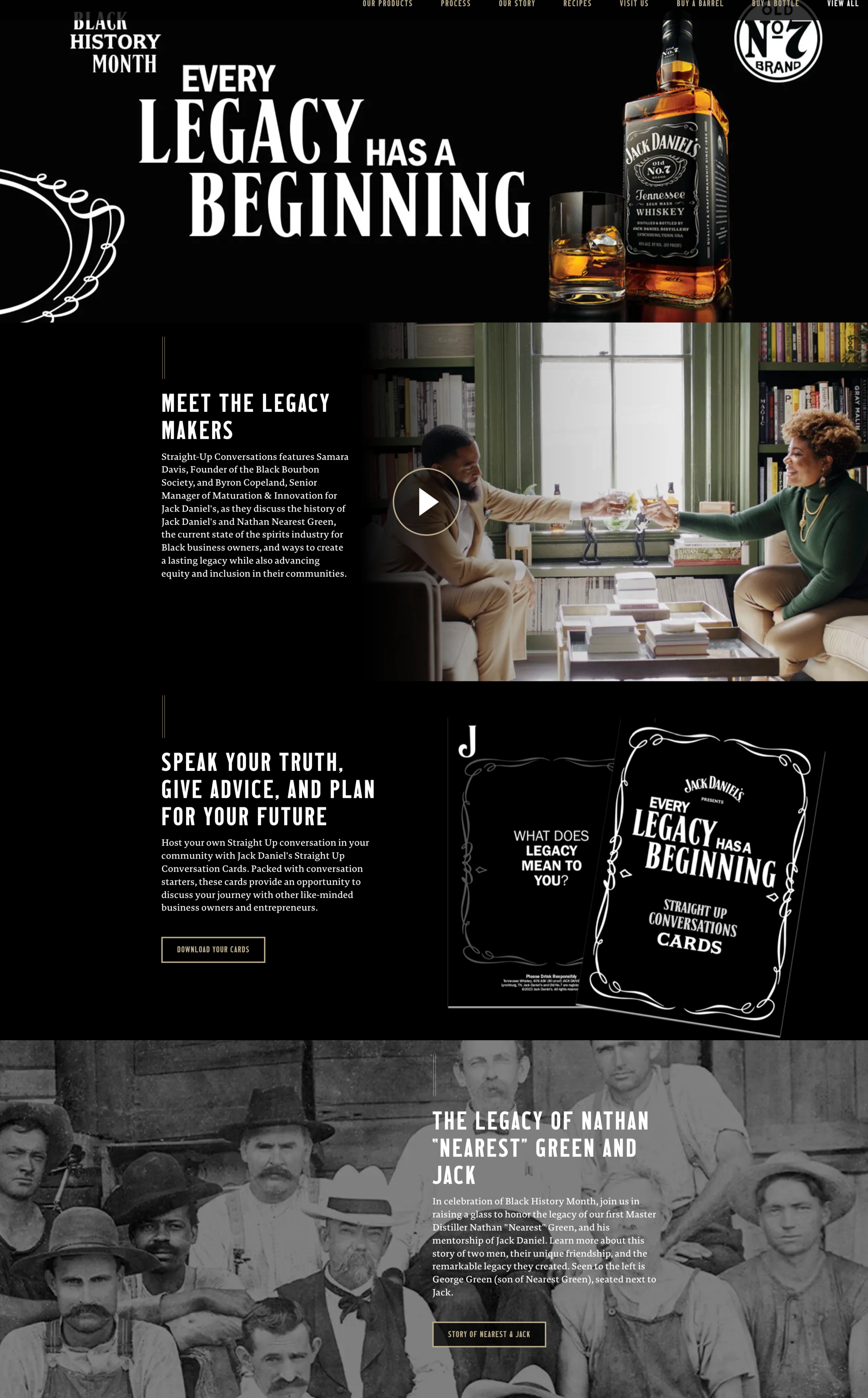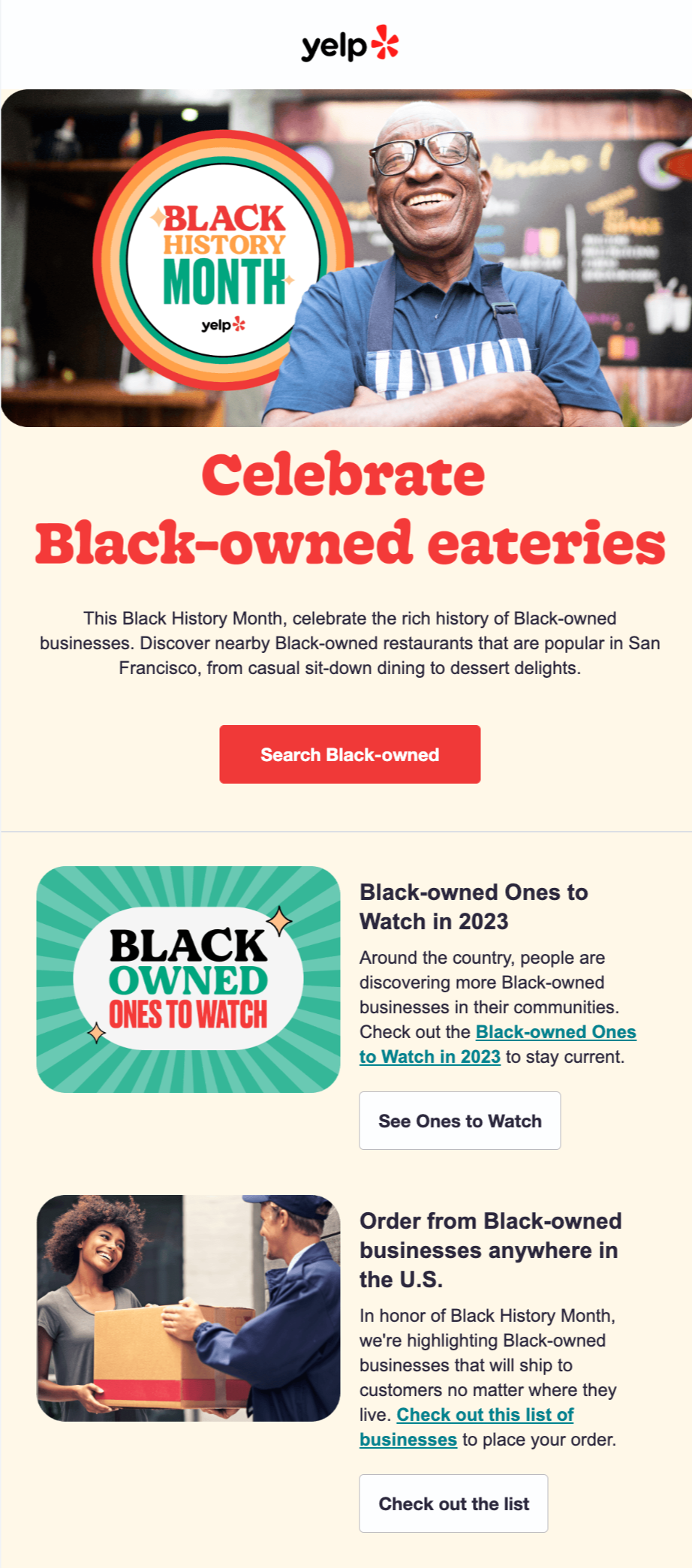As soon as the calendar reaches February 1st (and maybe slightly before), brands begin rolling out their marketing campaigns that commemorate and pay homage to Black History Month. But is starting near or around February and abruptly ending come March enough? In the past we’ve written about the history of Black History Month and the importance of creating authentic marketing campaigns. To achieve authenticity, customers are calling on brands to focus on inclusive marketing year-round.
As Digiday says, “In recent years, the one-month approach to Black History Month marketing hasn’t worked for brands as consumers have become skeptic[al] of brand marketing…” As a result of widespread misinformation and undergoing the collective trauma of a pandemic, customers are nervous about the intentions behind brands’ messaging. According to HBR, “A 2021 survey of 1,000 consumers concluded that more than 80% consider trust a deciding factor in their buying decisions, despite the fact that only 34% trust the brands they use.”
With customer trust currently in the toilet, brands need to demonstrate that their “inclusive” marketing messages during Black History Month aren’t just to check a box on an editorial calendar. But how?
Black History, Not Just in the Month of February
As consumers, we’re well aware of these “tentpole” holidays that brands are desperate to be a part of. We’ve gotten the one-off rainbow-smattered emails in June and the nods to Rosie the Riveter in March. Unfortunately, Black History Month has also fallen victim to these inbox-stuffers brands insist on sending out.
As marketers, however, we’re faced with a challenge—a double-edged sword. Don’t send anything and you’ll be criticized; send something vague and you could be criticized even more. It’s not enough to be part of a conversation anymore. Brands need to align their values with their inclusive marketing efforts and their marketing messages should reflect this connection. Plus, to be seen as truly authentic, these inclusive marketing efforts have to extend beyond February. Let’s take a look at some brands that are doing it right.
1. Creating Permanent Pages on a Website
Digiday pointed out Jack Daniel’s, the whiskey maker, as a brand who celebrates the Black community beyond the month of February. Through their “Every Legacy Has a Beginning” campaign, Jack Daniel’s highlights the importance of having “Straight Up” conversations, featuring Legacy Makers, printable cards to start conversations, and the history of Nathan “Nearest” Green, the enslaved man who, in the late 1850s, taught Jack Daniel’s how to make whiskey.


Jack Daniel’s hosts a permanent section on their website dedicated to having honest conversations and celebrating the company’s Black community throughout history.
This section of the Jack Daniel’s site is tied directly to Black History Month, but it doesn’t go away at the end of February. While this page is now a permanent fixture on their site, Jack Daniel’s didn’t always acknowledge the role Nathan “Nearest” Green played in the company’s history, but once author and real estate investor, Fawn Weaver, dug into their past, Jack Daniel’s now recognizes Nathan “Nearest” Green as their first master distiller, with Jack Daniel listed second.
2. Donating to a Cause
Another way brands can extend their recognition of Black History Month beyond February is by donating to a cause that supports and uplifts the Black community. Global Citizen, an international education and advocacy organization dedicated to ending extreme poverty, issued an Action Alert via email. This Action Alert calls out the need to fight inequality and discrimination every day, not just in February.


Global Citizen recognizes that discrimination is an issue that extends far beyond the bounds of February and asks members to become Equity Heroes.
Taking action on Global Citizen’s site directly contributes to their goal of ending extreme poverty. As they say on their site, “When you take action, you’re fighting for a world free from extreme poverty. Global citizens’ voices influence world leaders and decision makers, and contribute to shaping our world.” This email, when clicked, takes users to a challenge titled “Equity Hero.”
To become an equity hero, Global Citizen outlines seven steps:
- Equity vs. Equality: What’s the Difference?
- Follow Some Activists!
- Get to Grips with Intersectionality
- Do a Self Assessment
- Educate Yourself
- Start a Conversation
- Choose Equity and Justice Everyday.
A big part of inclusive marketing is the actual inclusion of underrepresented groups, as well as the recipient of messages. Too often is marketing a one-way street of sender to recipient. Global Citizen’s example here shows a good way to empower an email audience to make a difference they might not have know about previously.
3. Building Support Into Your Business
Another way brands can uplift and celebrate the Black community during Black History Month and beyond is by making it easy for their customers to support the community. Yelp, the review app, for example, includes a filter on their app making it easy for users to find Black-owned businesses and restaurants in any part of the world. This feature is built into the app and doesn’t disappear come March.


Yelp celebrates Black-owned businesses and makes it easy for users to find and support these businesses.
In their Black History Month email, Yelp highlights the fact that their app allows users to filter by Black-owned businesses. It’s not a new feature or a pop-up, one-time occurrence. Their ones-to-watch CTA leads to a nationwide list of Black-owned businesses in food, beauty, and home decor. Featuring this list further demonstrates Yelp’s awareness of new Black-owned businesses on a national scale as something that happens all the time, not just in February.
The Intersection of Brand Identity and Brand Values
Celebrating Black History Month can be an opportunity for your brand to highlight year-round initiatives that are already underway. Don’t be the brand that, for 28 days, supports a cause or throws up a celebratory LinkedIn banner. Be the brand that continuously makes a difference and contributes to the cause beyond February.
As Iterable’s DEI Specialist Jasmine Jackson puts it, “Throughout the year, we embed the importance and dignity of Black voices and experiences. In the United States, February serves as an opportunity to illuminate this sentiment by celebrating Black History Month.
Across history, Black people have made extraordinary contributions throughout the realms of creativity, innovation, and culture. This Black History Month, it is as important as ever to recognize the power of knowledge, celebration, and community.
Iterable is excited and proud to celebrate this month with our Black @ IT Affinity Group and Iterator community. Whether it’s finding community events, exploring learning resources, or supporting Black-owned businesses, we encourage you to find ways to observe this month!”






























